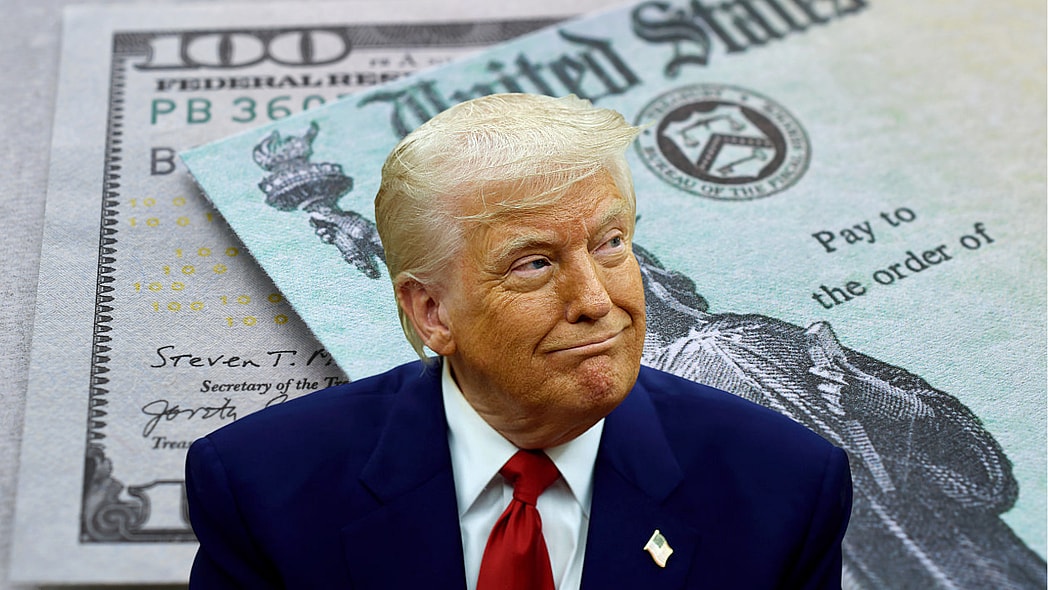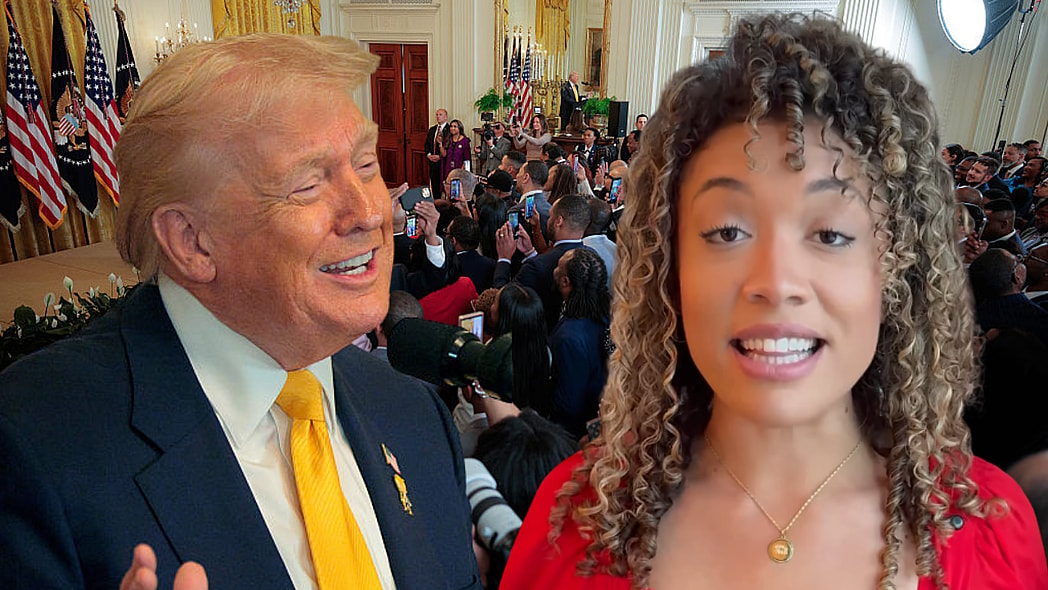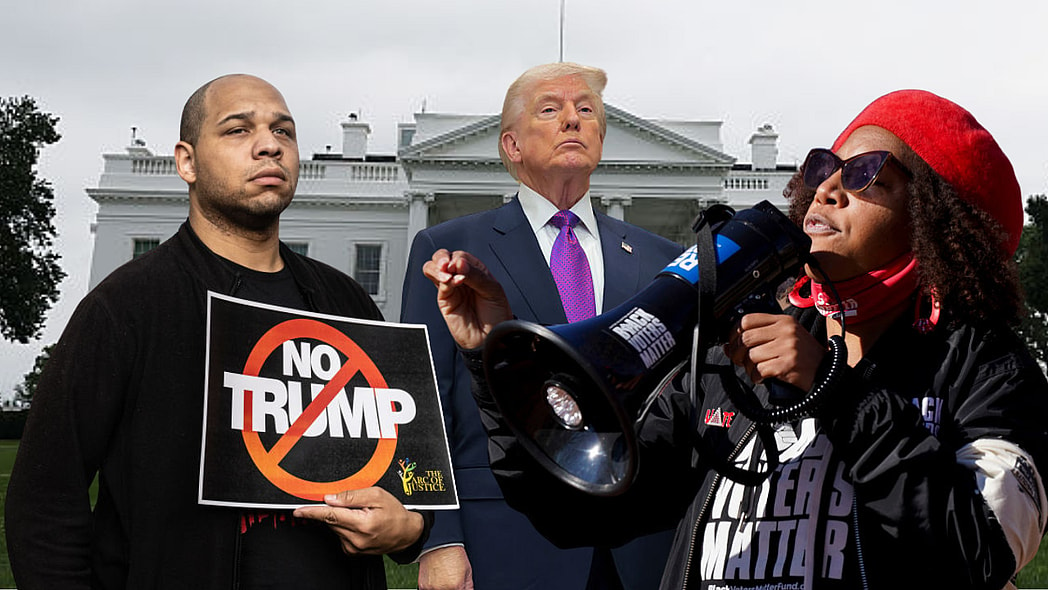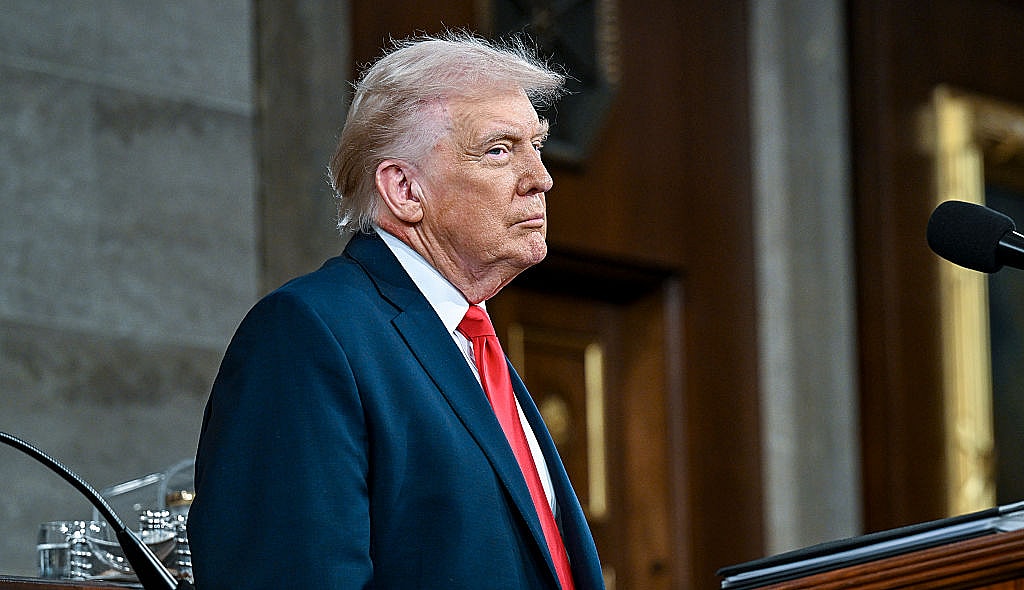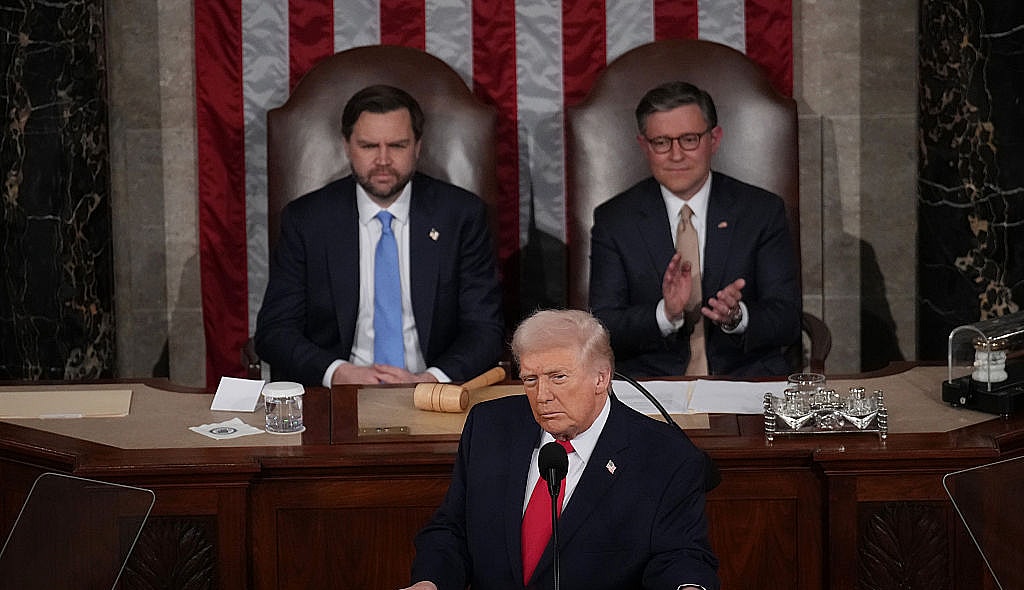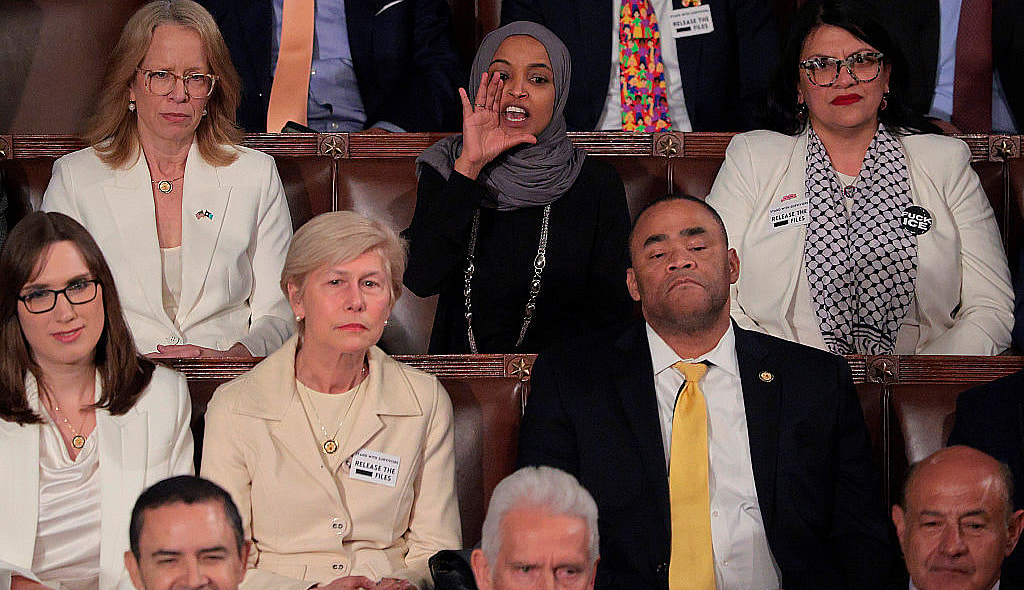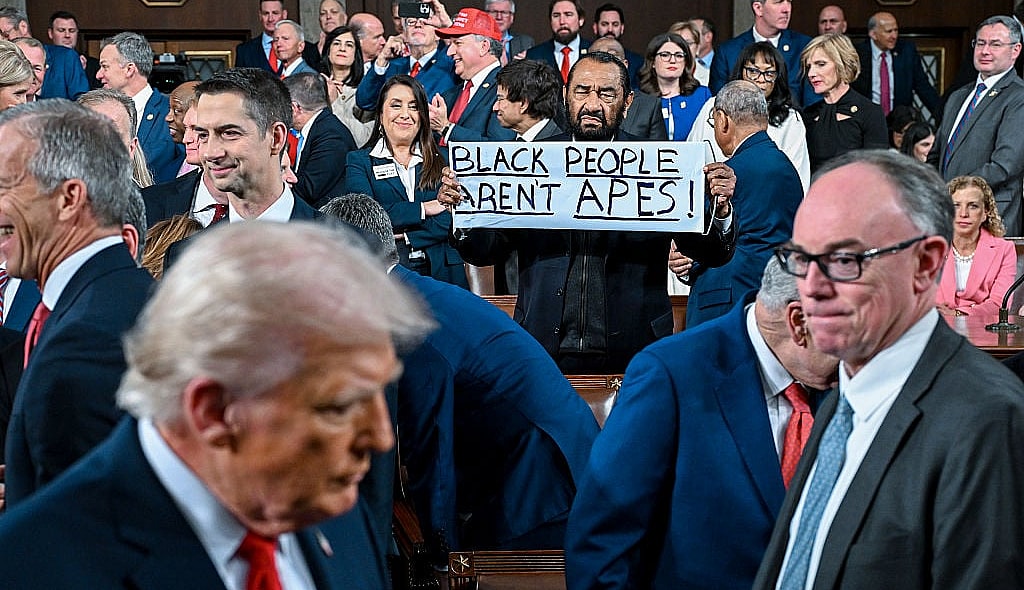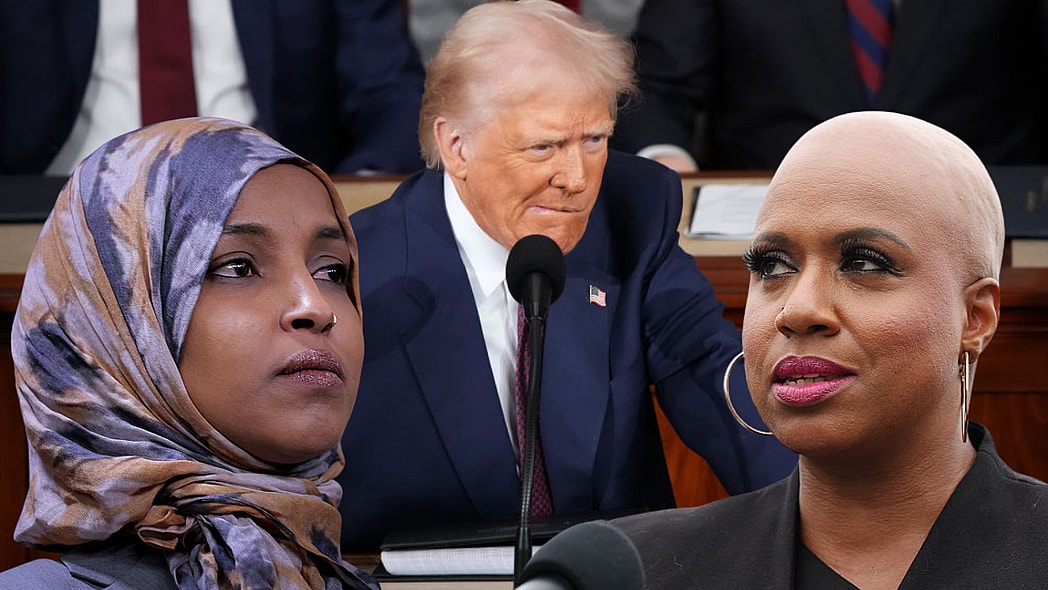Donald Trump’s vow to give police officers “immunity from prosecution” if elected back into the White House signals danger for Black and brown communities, legal experts and advocates warn.
The Republican presidential candidate has on more than one occasion vowed to empower law enforcement to do their jobs without limits, a stark contrast to the movement for Black lives in 2020 comprised of mass protests demanding police accountability in the wake of George Floyd’s murder and other police-involved deaths.
“We’re going to give our police their power back,” Trump told supporters during a rally last week in Waukesha, Wisconsin. “We are going to give them immunity from prosecution.” The twice-impeached and four-times-indicted former president made a similar statement in December 2023 during a campaign event in Iowa, where he promised to “indemnify” police officers to shield them from prosecutorial harm.
“If there’s no criminal accountability of police for criminal behavior, then the fox is guarding the henhouse, and we’re the hens, and we’re living in a country that’s becoming a police state,” said Maya Wiley, an advocate and civil rights attorney who served as counsel for New York City’s Civilian Complaint Review Board, a police watchdog.
Wiley told theGrio that if Trump’s vision for America were a reality, it would cause particular harm in Black and brown communities, which are already “overpoliced and experience constitutional violations and police misconduct disproportionately.”
However, she noted, Trump wouldn’t have the authority he claims to have if elected president in November. She explained, “The president of the United States has no power to tell states that they must exempt their state-controlled police forces from crime.”

However, critics warn that a U.S. president endorsing police “immunity” does not bode well for already vulnerable communities that have been historically overpoliced and mistreated.
“Trump characterizes the darkest periods of police brutality and mass incarceration as a hallmark of the ‘good old days,’ and he’s intent on bringing them back,” said Markus Batchelor, national political director at People For the American Way. “He has made clear his preference for state violence to silence dissent or achieve his political goals.”
Batchelor highlighted Trump’s penchant for embracing police brutality and violence, including encouraging “violence at his rallies,” ordering the military to “assault peaceful protesters” and inciting the deadly riot at the U.S. Capitol on Jan. 6, 2021.
“He’s made clear his plans for unchecked police power in our cities, mass detention at the border, and politicizing the Justice Department against his opponents,” he told theGrio. “Anyone playing off Trump’s threat should believe what they see.”
Michael Blake, a former Obama White House staffer and former vice chair of the Democratic National Committee, told theGrio that Trump’s statements on policing put law enforcement above the communities they are sworn to protect and serve.
“You are literally saying that a badge and a gun have more power than your liberties, than your democracy, than your humanity,” said Blake, who currently serves as CEO of KAIROS Democracy Project. “To any Black person that is even entertaining the nonsense of Trump and RFK [Robert F. Kennedy Jr.] and Cornel West, you are being reminded again, that our livelihood is at stake.”
While some police officers have faced convictions for the abuse or murder of unarmed, innocent Black victims in recent years — most notably six Mississippi officers who abused and brutally tortured two Black men in January 2023 — legal experts point out that law enforcement already possesses significant legal protections.
Recommended Stories
“We are still in a system that is not sufficiently holding police accountable,” said Wiley, a former New York City mayoral candidate who ran on a platform to reform the police department. “As a nation, we have to do a lot more work and a lot more confronting what we were all saying we were willing to confront after George Floyd’s murder.”
The George Floyd Justice in Policing Act, a bill aimed at addressing police accountability, failed in the United States Congress in 2021 as a result of Republican lawmakers refusing to budge on reforming specific legal protection for police officers known as qualified immunity. Given the Republican Party’s lacking appetite, Democrats will have to win back a majority in the U.S. House of Representatives, maintain control of the U.S. Senate, and reelect President Joe Biden for any viable chance for federal police reform.
Despite the Floyd bill’s failure in Congress, Biden has taken executive actions to address police accountability, including establishing a nationwide database to log police misconduct, banning chokeholds and restricting no-knock warrants. However, the president’s actions are only enforceable on federal law enforcement.
The Department of Justice under the Biden administration has filled in the gaps on the state and local level by opening misconduct probes known as pattern-or-practice investigations. Since Biden entered office, the DOJ launched 11 such probes into police departments, including the Minneapolis Police Department (responsible for Floyd’s murder), the Louisville Metro Police Department, the Louisiana State Police, and the Memphis Police Department, following the brutal death of Tyre Nichols in 2023.
Criminal justice advocates are concerned Trump would undo the work of the DOJ to hold police accountable. Especially considering Trump’s vow to order the historically independent agency to prosecute his political enemies if reelected, and proposals for the next Republican president to replace career federal workers with political appointees.
“He would absolutely close [the investigations],” said Blake. “This is a man who is saying that he should be above prosecution himself. Why on earth would we believe that he would want greater investigations on the local level?”

Wiley reminded that while in office, Trump’s Department of Justice under Attorney General Jeff Sessions “stopped police oversight and the kinds of reporting about patterns and practices and systemic police misconduct in departments.”
She said Trump “wants to be an authoritarian” and everything he has proposed as it relates to law enforcement suggests he “wants to be the monarch” and not a president who will “protect the constitutional boundaries of government.”
In a statement provided to theGrio, the Biden-Harris campaign slammed former President Trump as a “racist” who does not respect Black lives.
“Donald Trump is the same racist who came into public life by falsely accusing the Central Park Five and pushed for stop and frisk during his time in the Oval Office,” said Jasmine Harris, the campaign’s director of Black media. “In 2020, while the rest of the nation was heartbroken and came together demanding justice for George Floyd’s family, Donald Trump questioned his humanity.”
By contrast, Harris said, “In the four years since Black voters sent Joe Biden and Kamala Harris to the White House, they have delivered real progress.”
Batchelor told theGrio, “There’s no comparison between Trump and Biden on justice reform and policing.”
“The justice department has had the room to go after patterns of abuse and seek justice for victims. The federal bench is being filled with fair-minded judges to offset Trump’s disastrous impact on the courts,” he explained. “The Biden administration has also been a reliable partner to communities leveraging the resources to innovate and invest in solutions that secure safety long-term, beyond policing.”


